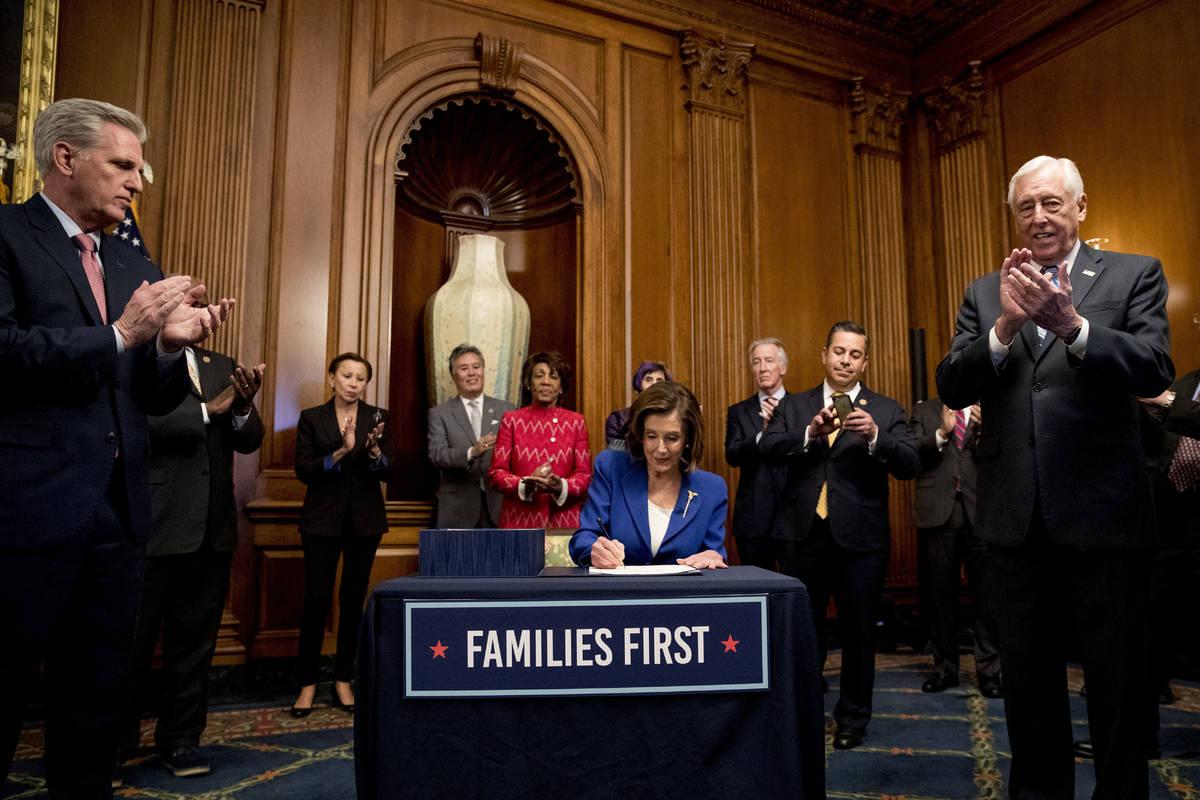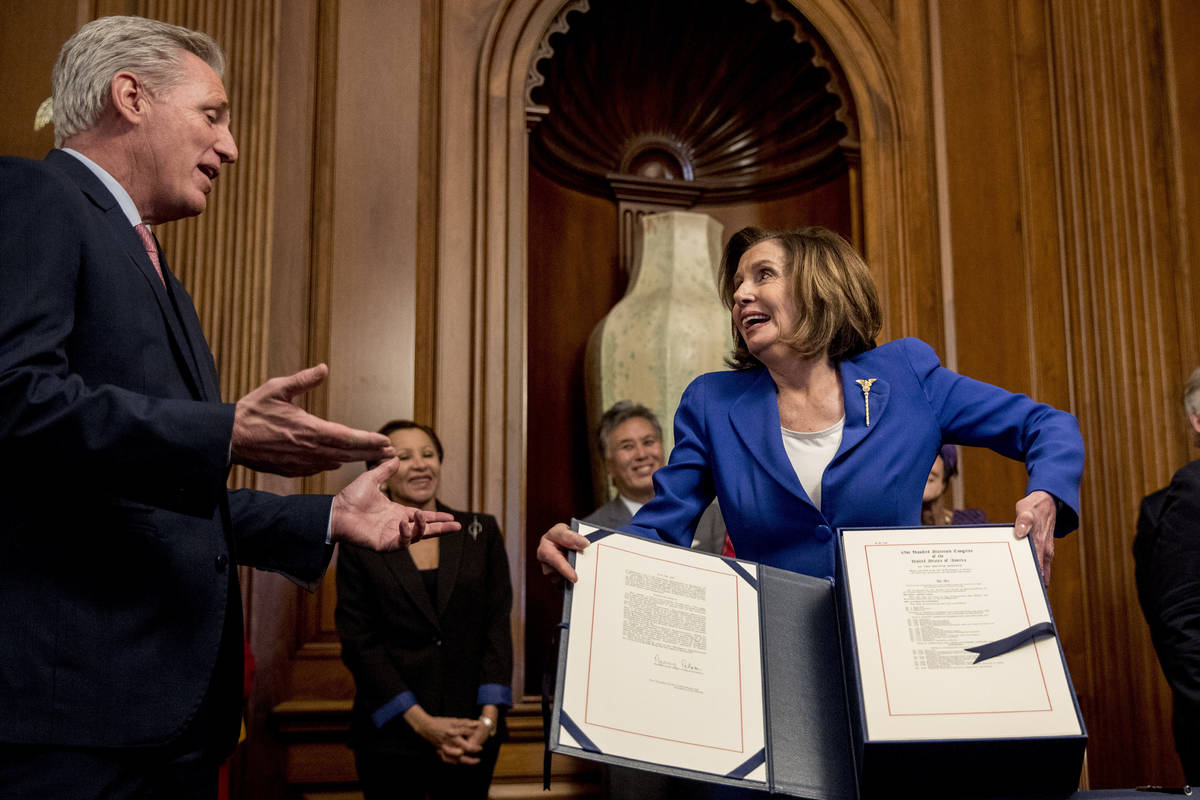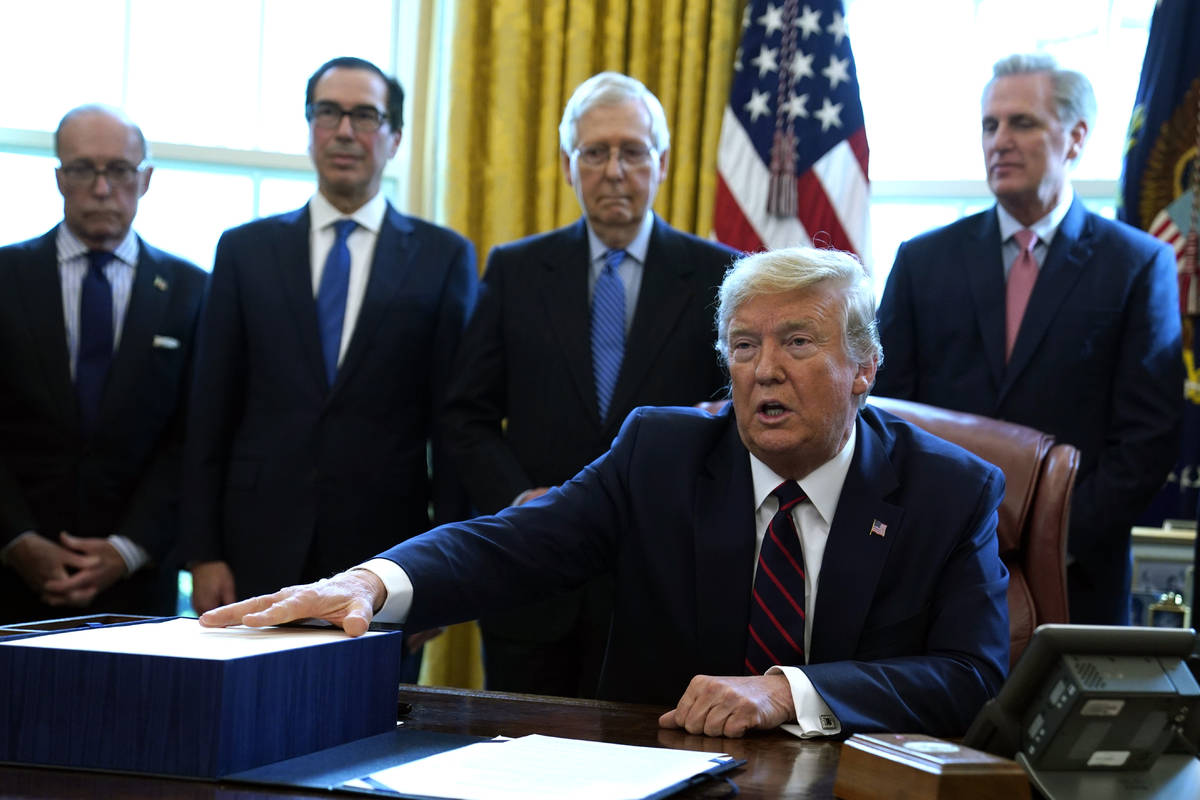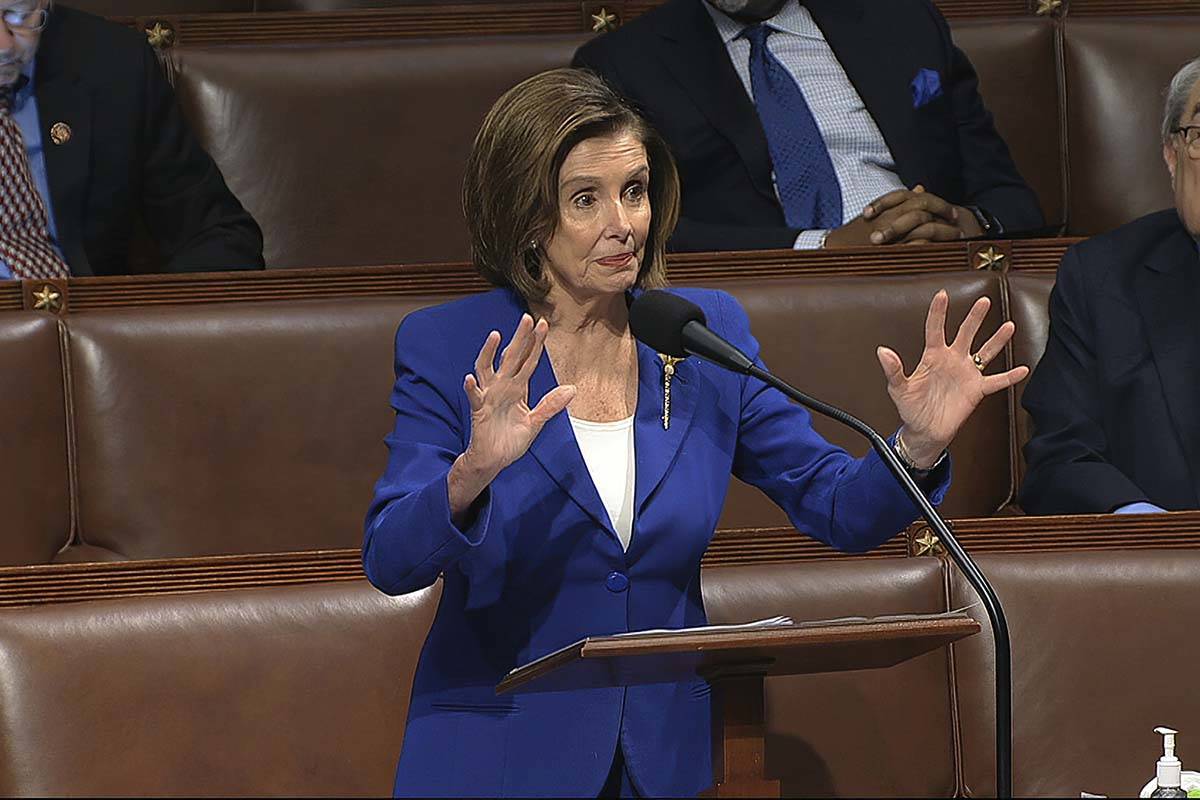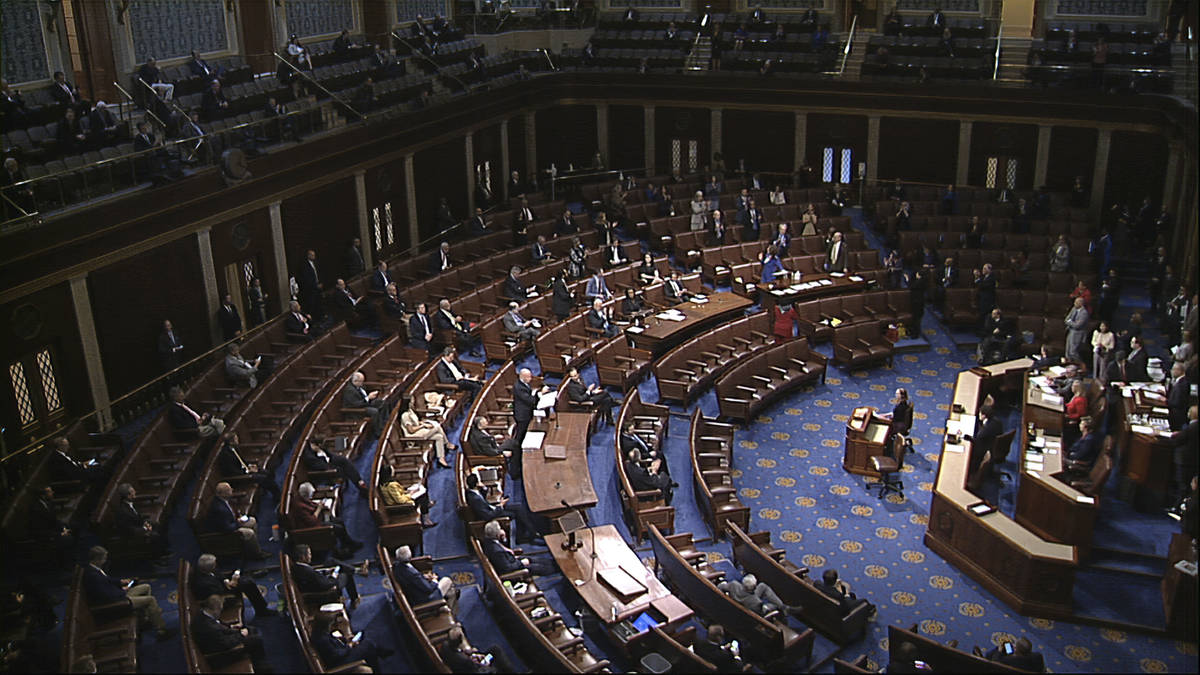Trump signs $2.2T coronavirus relief package after House passage
WASHINGTON — President Donald Trump signed into law a sweeping $2.2 trillion coronavirus relief bill Friday, hours after the House of Representatives passed the unprecedented measure.
The House passed the bill on a voice vote after lawmakers were forced to scramble back to the Capitol when a lone Republican bucked GOP leaders and threatened to force a roll call vote.
Trump signed the bill at a White House ceremony where GOP congressional leaders were in attendance.
“I want to thank Democrats and Republicans for coming together and putting America first,” he said.
As the ceremony began, Trump spoke of how the new coronavirus changed life in the world and in the United States.
“We got hit by the invisible enemy and we got hit hard,” Trump said.
Earlier Friday, Rep. Kevin Brady, R-Texas, the ranking Republican on the tax-writing House Ways and Means Committee, said time was of the essence as the death toll and number of unemployed due to the coronavirus pandemic continue to climb.
“We must act now, or the toll on lives and livelihoods will be far greater,” Brady said.
Highlights of the legislation include:
— $1,200 cash payments to most Americans.
— $500 cash payment to most families for each child.
— $500 billion for companies, states, local and tribal governments.
— $367 billion to help small businesses.
— $150 billion for hospitals.
Leaders of both parties sought to pass the measure by voice vote to accommodate members scattered around the country and reluctant to risk flying back to the Capitol.
But Rep. Thomas Massie, R-Ky., announced Thursday that he would request a roll call vote, citing constitutional concerns that lawmakers record their vote on such a massive spending measure that will significantly add to the nation’s debt.
He did — standing to raise objection to a voice vote, or unanimous consent. But his procedural move was overcome because more than 216 lawmakers, sufficient for a quorum, were counted as present.
Trump called the Kentucky lawmaker a “third rate grandstander” on Twitter.
The president tweeted that the lawmaker was a “disgrace to America” and should be drummed out of the GOP.
Still, Massie’s move forced lawmakers to scramble to get back to the Capitol to be ready to vote.
“I’ve landed in Washington,” Rep. Susie Lee, D-Nev., wrote on Twitter early Friday after flying in from Las Vegas.
“Ready to go vote on the #CARESAct, giving much-needed relief to our families, small businesses, hospitals, state and local governments and schools,” Lee wrote.
As hospitals and health care workers struggle with staggering numbers of infections — which have now surpassed 85,000 people — Rep. Dina Titus, D-Nev., said on the House floor that the bill provides “the resources they need.”
Because of the direct checks to families, Titus said, “most Americans will see tangible benefits from this recovery package.”
Rep. Steven Horsford, D-Nev., also took the floor to tout the bill’s increase in unemployment benefits and financial help for families struggling with the economic fallout of the pandemic.
“This body is here to send a united message to the American people,” Horsford said. “Help is on the way.”
Horsford said the bill increases unemployment benefits and extends the length of unemployment from three to four months.
“We are going above and beyond for our country’s workers,” Horsford said.
The lone Republican in the state delegation, Rep. Mark Amodei, said the bill would provide much-needed relief for Nevada.
“Workers are hurting, small businesses are hurting, and hospitals are in desperate need of supplies … so why let perfect be the enemy of good?” Amodei asked.
“While we can never say mission accomplished, this package will provide urgent and immediate relief to workers on the job, the unemployed, distressed industries, and our health care professionals and first responders on the front lines,” the Carson City lawmaker said.
The Senate passed the bill, 96-0, on Wednesday. The unanimous vote followed days of delay brought on by Democrat and Republican senators who sought to tweak the bill over ideological programs and spending.
It was an extraordinary day as lawmakers were seated in the public galleries that ringed the House floor in order to provide distance from one another and obey public health protocols.
Below, House Speaker Nancy Pelosi, D-Calif., and Minority Leader Kevin McCarthy, R-Calif., spoke of bipartisan cooperation to put together the massive package of aid.
Both sought to expedite passage with a voice vote in order to move the bill quicker to the president’s desk.
In addition to the items in the bill, lawmakers included restrictions on the aid.
There is language in the bill that would prevent the president, White House officials, members of Congress or their staffs from receiving federal funds or loans in the package.
Language was also included to prevent companies from using the aid for stock buybacks or executive compensation, a situation that marred the 2008 Wall Street bailout.
Nevada casinos, hotels and tourism businesses would be eligible to apply for assistance designed to protect workers from layoffs and keep large companies solvent. The state’s lawmakers and the Las Vegas Chamber of Commerce had lobbied for the aid.
Contact Gary Martin at gmartin@reviewjournal.com or 202-662-7390. Follow @garymartindc on Twitter.



